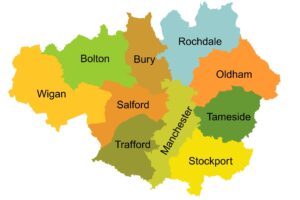Private renters are twice as likely to be in problem debt as the general population, according to a new report.
Published by the debt charity StepChange, the report said the private rented sector (PRS) was unaffordable, inaccessible and insecure for those on the lowest incomes, leaving them at high risk of problem debt, poor mental and physical health and prolonged housing insecurity.
Alongside the report, StepChange commissioned polling through YouGov that found:
- 15% of private renters (equivalent to 1.1m people nationally) are in problem debt, compared to 8% of the general population
- The number of private renters in problem debt has risen sharply from 800,000 people (11% of private renters) in January to 1.1m people (15%) in May
- Half of all private renters (3.7m people) have seen their rent increase in the last 12 months
- More than 1.2m private renters (17%) are using credit to make ends meet
- Two thirds (66%) of renters whose rent increased said this has had a negative impact on their mental health
The government’s long-awaited Renters (Reform) Bill will ban ‘no-fault’ evictions, but the report highlighted an overlooked group of financially and otherwise vulnerable PRS tenants who face a number of challenges that will not be addressed by these proposals.
The strengthening of grounds for eviction on the basis of arrears will leave many who are falling behind on their rent vulnerable to hair-trigger eviction. With so many renters in financial difficulty, StepChange called on the government to introduce stronger protections for those who fall behind on their rent, as well as boosting housing benefit.
Against a backdrop of rapidly increasing rents, stagnating incomes and housing benefit frozen since 2019, StepChange’s client survey found private renters struggled with the affordability of their homes more than any other housing tenure.
Average monthly private rent payments were found to be almost double those in the social sector, and 39% more than average mortgage payments, while 78% of PRS tenants who receive housing support said that support did not cover all of their rent costs.
The survey also found that PRS landlords often claw back rent arrears at an unaffordable rate and are less likely than social landlords to signpost tenants to support. Almost half (46%) of PRS tenants in arrears who were surveyed said that repayments were unaffordable, compared to 32% of social tenants. They also repaid an average of four times more each month in arrears repayments compared to both council and housing association tenants.
Over two-fifths (41%) of respondents reported that being in receipt of benefits was a barrier to renting privately, while over half (52%) of clients said that access to housing had been negatively affected by factors linked to financial difficulty.
Meanwhile, one in five private renters who tried to find a new home in the last 12 months stated that they were asked to pay more than two months’ rent in advance and more than half (52%) were asked to bid on the property they were trying to rent; just 28% were successful.
Three in four (75%) private renters said they or their family had been negatively affected by housing issues. This included direct impacts on health, for example on chronic health conditions, as well as the impact of housing insecurity and affordability worries on mental health problems.
Richard Lane, StepChange’s Director of External Affairs, said: ‘Everyone deserves to live in a house they can call home, but this is becoming increasingly out of reach for a growing number of private renters. Against the backdrop of a frenzied rental market, where bidding wars, sky-high deposits and rising rents are commonplace, those who are financially vulnerable are often left with no choice but to take on unaffordable, insecure, poor-quality accommodation just to keep a roof over their heads.
‘The government’s Renters’ Reform Bill will rightly withdraw landlords’ rights to carry out no-fault evictions, but there is more to do to protect those who should be in socially rented accommodation but have no hope of accessing it. Unless we see benefits that cover the real cost of renting, alongside strengthened rules that protect financially vulnerable tenants who fall behind on their rent, the cycle of debt and housing insecurity will be doomed to repeat itself for millions of people.’
Image: Towfiqu barbhuiya

















Leave a Reply